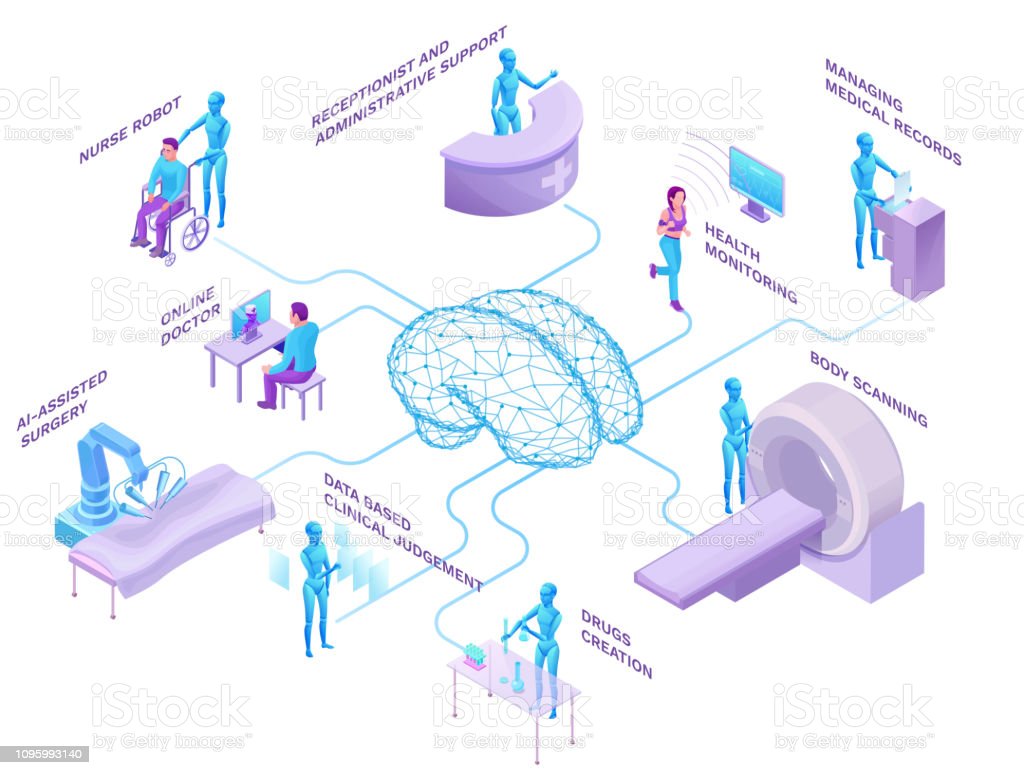Jun16

Consumerization is transforming the healthcare space with digital technologies causing a fundamental shift in consumer behavior, demands, and preferences. This transition has changed the way consumers (patients) interact with healthcare providers, with digital standardizing healthcare experiences and consumer engagement. As one report titled Healthcare in the Digital Age explained, “the dynamics of the healthcare industry are changing—with innovative digital solutions bringing about a shift from the curative care model to a more preventive care model.”
Artificial Intelligence (AI) is a set of technologies that includes automated systems able to perform tasks that usually require human intelligence, such as visual perception, speech recognition, and decision-making. AI in healthcare can apply these systems to perform administrative or clinical functions, ultimately augmenting human activity. In the US, healthcare organizations have yet to unlock the full potential of AI, even though the majority are open to leveraging its extensive capabilities. The opportunity is realized and has been extensively measured.
It’s interesting to see how the industry has changed to meet the demands and expectations of today’s patients. Digital health tools that facilitate innovative methods and modalities to improve care, enable lifestyle change, and create efficiencies are progressing quickly. And as patients (patient = consumer) continue to adopt digital interactions, healthcare organizations are rapidly leveraging these technologies to improve care and the patient experience.
As healthcare organizations seek more customized, data-driven patient care, adopting technologies to promote digital engagement, data management, and workflow optimization is vital. Cloud platforms, along with data analytics and AI, can help organizations achieve these goals while focusing on patient care and security. Artificial Intelligence (AI) and cognitive computing can empower patients, transform the practice of medicine and save the health care industry over $150 billion by 2025. According to one report from Frost and Sullivan, AI could improve health outcomes by up to 40 percent and reduce treatment costs up to 50 percent by improving diagnosis, increasing access to care, and enabling precision medicine.
In short, AI enables greater accessibility, relevancy, and actionability of healthcare information. Healthcare providers may not treat a physical patient but instead analyze and treat data in the future. Recent innovations will create lasting improvements in healthcare accessibility. As research in AI and other digital health tools continues, documentation of real-world outcomes, measured economically and clinically, is necessary.
AI has a substantial reach and can magnify the reach of care by integrating health data across platforms. The 2020 Accenture healthcare AI report found that essential clinical health AI applications can potentially create $150 billion in annual savings for the US healthcare economy by 2026. These cost savings potential is one reason healthcare organizations will continue to invest in digital solutions to deliver new sources of value over the foreseeable future, whether it's to lower the cost of care, improve labor productivity, or enable better patient/customer experiences or another desired outcome.
AI is getting increasingly sophisticated at doing what humans do, but more efficiently, quickly, and at a lower cost. Building off the Accenture AI report, growth in the AI health market is expected to reach $6.6. billion by 2021, with the market growing more than 10x by 2025. Patients/consumers also want AI, which leads to data security questions and fears. Organizations within the digital health/AI ecosystem will need to work together ethically and be secure in managing critical information on patients.
Healthcare organizations mostly all agree that AI and machine learning will affect the future of work, therefore, have an opportunity to employ AI to make a systematic shift that affects every process, piece of data, healthcare professional, and patient. While investments and adoption are expected to exponentially grow, organizations must understand the full potential value AI delivers financially, systematically, and organizationally.
AI can help prevent medical mistakes and flag those most at risk for problems. In the January 2020 publication of the scientific journal Nature, researchers found that by using AI technology, there was a reduction in false positives and false negatives when it came to diagnosing forms of breast cancer. Through reduced labor costs alone AI represents a notable opportunity for organizations to better control their bottom line in new payment regard while capitalizing on new growth potential.
Several surveys conducted in 2019 found that the ability to improve or assist in the accuracy of diagnosis and clinical outcomes is the greatest impact AI will have in the short term on patient care. This same survey also found that of those organizations that have yet to adopt AI, cost remains the most significant obstacle in implementation—followed by a lack of strategic direction” within their organization.
While many American healthcare professionals are not currently using AI, many healthcare professionals would feel comfortable using it for a range of areas, suggesting a general openness to unlocking the full potential of AI in the future. As these and other AI applications gain more experience in the field, their ability to learn and act will continually lead to improvements in precision, efficiency, and outcomes.

With much of health and health care moving onto digital platforms, there has been remarkable growth in the amount of information generated. As the conversation on the potential wonders of AI becomes more mainstream, it is easy for misguided fears and optimism to hide its legitimate near-term possibilities. The purpose is to build competency in AI and data science to the point that health care AI presents an assistive benefit to humans rather than replacing them. And of course, the need for privacy and huge amounts of data remains a challenge for AI in healthcare.
Mistaken fears and reporting isn’t the only limitation to AI adoption; low healthcare system literacy is a key barrier for any new technology or service model. This is notably true in the US, where reports are finding over half of the American population ranks low in healthcare system literacy – causing an estimated $4.8 billion annual organizational cost burden for payers. Our next article will cover the role digital health technologies can play in improving healthcare system literacy, also known as social detriments of health.
Keywords: AI, Health and Wellness, HealthTech
 How Your Physical Environment Shapes Focus, Wellbeing, and Performance More Than We Think
How Your Physical Environment Shapes Focus, Wellbeing, and Performance More Than We Think 7 Habits of Credible LinkedIn Relationship Building
7 Habits of Credible LinkedIn Relationship Building From Reactive Loops to Causal Agency: The Evolution of Aviation Control Systems
From Reactive Loops to Causal Agency: The Evolution of Aviation Control Systems What’s really holding your succession plan back: a lack of successors—or a lack of strategy?
What’s really holding your succession plan back: a lack of successors—or a lack of strategy? Friday’s Change Reflection Quote - Leadership of Change - Change Leaders Avoid Long-Term Instability
Friday’s Change Reflection Quote - Leadership of Change - Change Leaders Avoid Long-Term Instability